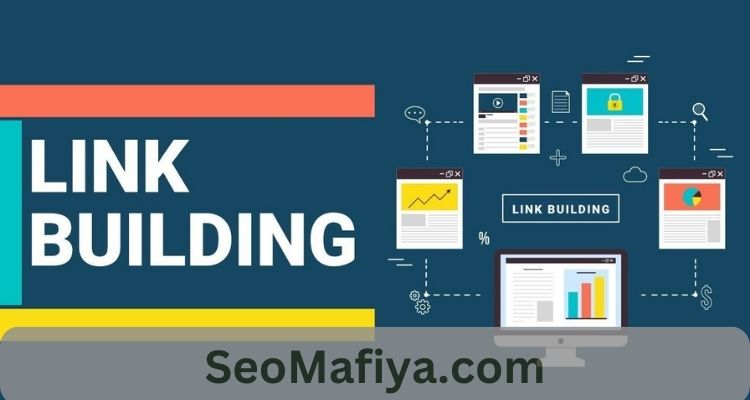Search engine optimization (SEO) is essential for any online presence. It’s the key to increasing your website’s visibility and driving organic traffic from search engines. SEO isn’t a one-size-fits-all strategy; it’s a multifaceted approach with various types, each serving a unique purpose.
On-Page SEO
On-page SEO revolves around optimizing individual web pages to rank higher in search results. This type of SEO involves optimizing various elements directly on your website, such as meta tags, headers, and content. The goal is to make your web pages more attractive to both search engines and users. By incorporating relevant keywords, creating high-quality content, and ensuring proper formatting, you can enhance your on-page SEO. Effective on-page SEO not only improves your site’s ranking but also provides a better user experience, ultimately increasing conversion rates.
Off-Page SEO
While on-page SEO focuses on your website’s content and structure, off-page SEO concentrates on building your site’s authority and reputation in the online world. One of the most crucial aspects of off-page SEO is link building, which we’ll explore in detail later. Other off-page tactics include social media marketing, influencer outreach, and online PR. Off-page SEO is about establishing your website as a trustworthy and authoritative source within your niche, which can significantly boost your search engine rankings.
Technical SEO
Technical SEO deals with the behind-the-scenes aspects of your website that affect its performance in search engine results. This type of SEO focuses on optimizing site speed, mobile-friendliness, and the overall user experience. By ensuring that your website loads quickly, is responsive on various devices, and is error-free, you can improve its crawlability and indexability by search engines. Technical SEO also includes optimizing your site’s XML sitemaps, robots.txt file, and implementing structured data to enhance how search engines understand and display your content in search results.
Local SEO
Local SEO is essential for businesses targeting a local audience. It involves optimizing your online presence to rank well in local search results. Key elements of local SEO include creating and optimizing your Google My Business listing, acquiring online reviews, and ensuring that your business’s information (name, address, phone number) is consistent across the web. Local SEO helps brick-and-mortar stores, service providers, and restaurants get discovered by nearby customers, driving foot traffic and online conversions.
Voice Search SEO
With the rise of voice-activated devices like Amazon Alexa and Google Assistant, optimizing for voice search has become increasingly important. Voice search SEO focuses on understanding how people use voice search and adapting your content to meet their needs. This includes using natural language, providing concise answers to common questions, and optimizing for local voice search queries. As voice search continues to gain popularity, businesses that invest in voice search SEO will have a competitive edge in reaching their target audience.
The Power of Link Building
Now, let’s delve deeper into one of the most critical aspects of off-page SEO: link building. Link building involves acquiring high-quality backlinks from other websites to your site. These backlinks act as “votes of confidence” in the eyes of search engines, indicating that your content is valuable and trustworthy. In order to accomplish this, you can either hire a link building service, or attempt to go it on your own.
Link building offers several benefits for your website:
Improved Search Engine Rankings: High-quality backlinks from authoritative websites can significantly boost your site’s ranking in search results. Search engines consider backlinks as a measure of a site’s credibility and relevance.
Increased Organic Traffic: As your site’s ranking improves, you’ll likely experience a surge in organic traffic. Quality backlinks can lead users from other websites directly to yours, increasing your visibility and potential customer base.
Enhanced Domain Authority: Acquiring backlinks from reputable sources can improve your site’s domain authority. This makes it easier to rank for competitive keywords and positions your site as an industry leader.
Referral Traffic: Backlinks not only benefit your SEO but can also drive direct traffic to your website. When users click on a link from another site, they are more likely to explore your content and services.
Networking Opportunities: Link building often involves outreach to other websites and content creators. This can lead to valuable partnerships, collaborations, and opportunities for guest posting, expanding your online presence.
Final Thoughts
In the vast landscape of SEO, different types cater to various aspects of website optimization. From on-page and off-page SEO to technical, local, and voice search SEO, each type plays a crucial role in improving your website’s visibility and ranking in search engine results.
Among these, link building stands out as a powerful tool in the arsenal of off-page SEO. By earning high-quality backlinks, you can establish your website’s authority, boost its ranking, and increase organic traffic. In the ever-evolving world of SEO, a well-rounded approach that encompasses various types and prioritizes link building can help your website rise above the competition and achieve long-term success.
